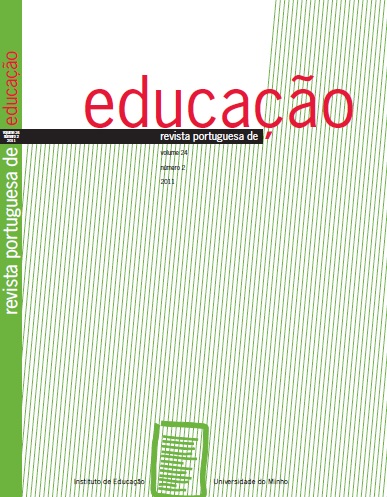SCHOOLING AND THE SOCIAL PRACTICES OF READING AND WRITING: THE ANALYSIS OF ADULT LEARNERS FROM BASIC SCHOOL
DOI:
https://doi.org/10.21814/rpe.3031Abstract
This article brings about reflections of a research carried out in the Project for the Youth and Adults in Elementary School from Federal University of Minas Gerais (Brazil). These reflections are on how adults, in the process of basic schooling, analyze their practices of reading and writing, understand their literacy experiences in school and evaluate the potential impacts on those practices. The analysis of four semi-structured interviews with students from Youth and Adults Education suggests that they consider the diversity of their reading and writing practice and recognize, although in a relativistic way, the role of schools in the promotion of literate practices of social use. The interviewees identify the expansion and the refining of their practices in reading and writing, triggered by demands and opportunities of the school experience. They point, however, to a certain independence from their everyday practices of literacy in relation to the school practices, independence which is a result of school experience or which is, in spite of it, preserved.
Keywords
Youth and adults education; Literacy; Sense and meaning
Downloads
Downloads
How to Cite
Issue
Section
License
1. The authors preserve their authorship and grant the Portuguese Journal of Education the right to the first publication. The work is licensed under Creative Commons Attribution License that allows sharing the work with the acknowledgment of initial authorship and publication in this Journal.
2. The authors have the right to take additional contracts separately, for non-exclusive distribution of the published version of their work (e.g. to deposit in an institutional repository or as a book chapter), acknowledging the initial authorship and publication in this Journal.
3. The authors have the permission and are stimulated to post their work online (e.g. in an institutional repository or on their personal website). They can do this at any phase of the editorial process, as it may generate productive changes, as well as increase impact and article citation (see The Open Citation Project).
The work is licensed under Attribution-ShareAlike 4.0 International (CC BY-SA 4.0)




















